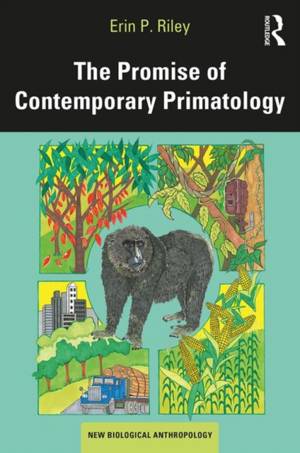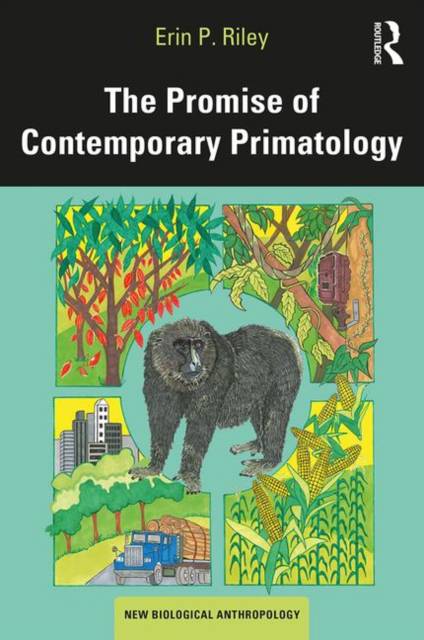
- Afhalen na 1 uur in een winkel met voorraad
- Gratis thuislevering in België vanaf € 30
- Ruim aanbod met 7 miljoen producten
- Afhalen na 1 uur in een winkel met voorraad
- Gratis thuislevering in België vanaf € 30
- Ruim aanbod met 7 miljoen producten
Omschrijving
This book argues for a contemporary primatology that recognizes humans as integral components in the ecologies of primates. This contemporary primatology uses a broadened theoretical lens and methodological toolkit to study primate behavior and ecology in increasingly anthropogenic contexts and seeks points of intersection and spaces for collaborative exchange across the natural sciences, social sciences, and humanities.
The book begins by exploring the American tradition of anthropology, providing historical and disciplinary context for the emergence of field primatology and how it became a part of this tradition. It then examines how primatology transformed into a field dominated by evolutionary approaches and highlights how the increasingly anthropogenic environments in which primates live present opportunities to understand primate adaptability at work. In doing so, it explores how an extended evolutionary approach can help explain behavioral variation in these contemporary environments. Focus is then given to the ethnoprimatological approach, a contemporary approach that provides a pluralistic framework, drawing from the natural and social sciences and humanities, needed to study human-primate coexistence in the Anthropocene. Finally, the book considers how such a crossing of disciplines can inform primate conservation in the future.
An important interdisciplinary reassessment, this book will be of significant interest to primatologists, biological anthropologists, and scholars of anthropology more generally, as well as evolutionary and conservation biologists.
Specificaties
Betrokkenen
- Auteur(s):
- Uitgeverij:
Inhoud
- Aantal bladzijden:
- 166
- Taal:
- Engels
- Reeks:
Eigenschappen
- Productcode (EAN):
- 9781629580715
- Verschijningsdatum:
- 10/09/2019
- Uitvoering:
- Paperback
- Formaat:
- Trade paperback (VS)
- Afmetingen:
- 147 mm x 226 mm
- Gewicht:
- 249 g

Alleen bij Standaard Boekhandel
Beoordelingen
We publiceren alleen reviews die voldoen aan de voorwaarden voor reviews. Bekijk onze voorwaarden voor reviews.











